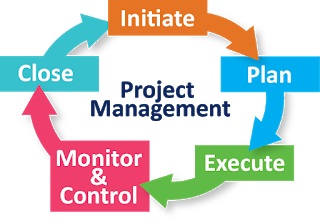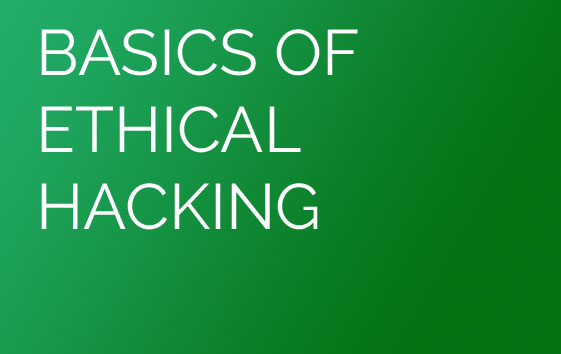Hi Friends... My New blog on What is Project Management?
Project
management
is the process of leading the work of a team to
achieve goals and meet success criteria at a specified time. The primary
challenge of project management is to achieve all of the project goals within
the given constraints. This information is usually described in project
documentation, created at the beginning of the development process
The objective of project management
is to produce a complete project which complies with the client's objectives.
In many cases the objective of project management is also to shape or reform
the client's brief to feasibly address the client's objectives. Once the
client's objectives are clearly established they should influence all decisions
made by other people involved in the project for example project
managers, designers, contractors and sub-contractors.
Throughout history, humans have
successfully accomplished a number of different projects. The outcomes of these
projects were driven by different best practices, tools and techniques used by
the project leaders (managers).
A 2017 study suggested that the success of any project depends on how well four key aspects are aligned with the contextual dynamics affecting the project, these are referred to as the four P's
·
Plan
: The planning and forecasting
activities.
·
Process:
The overall approach to all
activities and project governance.
·
People:
Including dynamics of how they
collaborate and communicate.
·
Power:
Lines of authority,
decision-makers, organ grams, policies for implementation and the like.
There are a number of approaches to
organizing and completing project activities, including: phased, lean,
iterative, and incremental. There are also several extensions to project
planning, for example based on outcomes (product-based) or activities
(process-based).
What is Project Life Cycle?
Project management life
cycle is the term used to describe the series of phases a project passes
through from its start to its completion. It establishes the basic framework
that can be applied towards any kind of project from software development to
construction to event planning.

The 5 Phases of Project Management
There are 5 main project
management life cycle phases that we will discuss in the course of this post:
-
Initiate
-
Definition & Planning
-
Execution
-
Monitor & Control
-
Project Close
Each phase assumes a number of
specific project management steps you will have to take to receive the required
output that we will further cover in this post.
This is the ground zero of any
project. Your main goal here is to conceive the project at a broad level:
-
Build a strong case for it (Why are we
doing this and what are the benefits?)
-
Feasibility study/analysis (Can we do it?
How much time and resources will it require?
-
Identify key stakeholders.
-
Develop a project charter.
Let us dwell further on the last
point. A project charter is
a document that offers a formal initiation definition of the project and
authorized the project manager to use the company's organizational resources
for project activities.
A project
management plan defines how a project will be executed, monitored,
controlled and closed basically, covering all the consequent stages of a
project. Depending on your needs, your project management plan can be either
summary level or highly detailed. Remember, your plan should also account for
the likely changes in the project environment e.g. when new information becomes
available, or if any requirements change.
Here are the key documents you will need to develop:
Project scope management plan
documenting all the deliverables of the project; scope
definition, validation and control. It should present a detailed list of
requirements for the project and a bird-eye view of what should be delivered
and when.
Requirements management plan
indicates how the requirements activities will be planned,
tracked and reported. It includes all the respective project management process
steps you will have to take to initiate changes, prioritize different
requirements, track and report them.
At this point, the actual work
on the project begins. All those requirements, resources and tools outlined in
the plan are leveraged to meet the project goals. The tasks you are expected to
complete at this stage are as follows:
-
Assemble a team
-
Assign resources
-
Start executing the project management
plan
-
Proactive control and manage project
execution
-
Identify KPIs and set-up tracking
systems.
-
Distribute and assign tasks.
-
Schedule status meetings
-
Update project schedule
-
Modify project plans as needed.
At this point, you will want to
adopt one of the project management tools to help you proactively manage and
review all the scheduled activities. To ensure that your project remains on
track at all times, you will want to establish key performance indicators
(KPIs). Most managers tend to settle for 3-5 metrics that clearly indicate the
project overall health in regards to performance, budgets, timelines and
objectives.
Specifically, you may want to
engage in:
-
Cost tracking:
review and refine project costs to
reflect additional details as those become available.
-
Quality
management:
make
sure that organizational quality policies are incorporated into the
project. All the deliverables are produced according to the predefined
specs.
- Overall project performance monitoring: monitor and respond to changes in the project. Assess the team effectiveness, proactively identify and prevent project bottlenecks and ensure that all the project cogs are moving without any friction. This also includes sharing project status reports with key stakeholders upon reached milestones.
- And we have made it to the final phase project completion. All the objectives are met; all the tasks are completed; the final deliverables are reviewed and sign-off by the customer.
- Apart from congratulating everyone on good work, professional PMs will often schedule a closing meeting the so-called project post-mortem to draw the final line. Such meetings are held to discuss the overall project performance, identify key failures and successes and apply those insights towards future projects.
- And then we are back to square one a new project initiated by the company that will pass through the very same 5 stages of the project management life cycle.
Below are the links to complete the course on PMP for your career.
1. SimpliLearn
2. Skillogic
3. Projectingit
Thanks
Sourabhgupta.com























